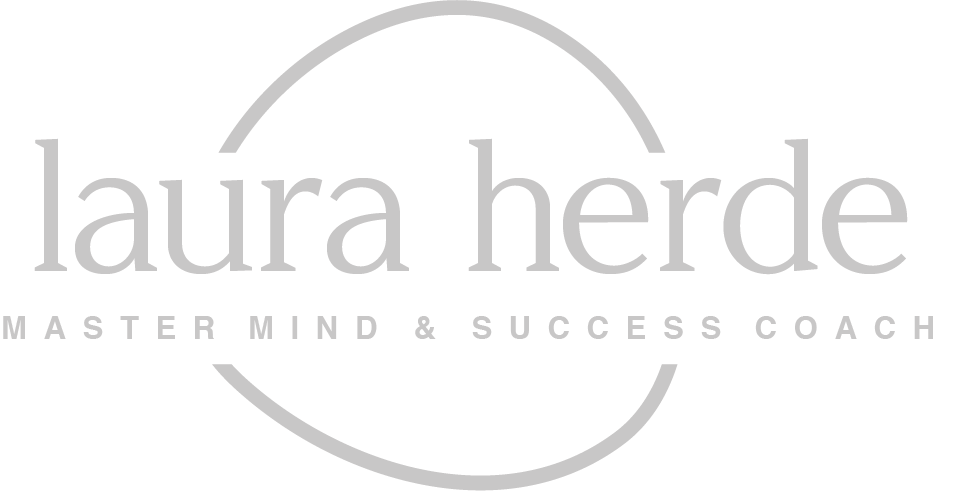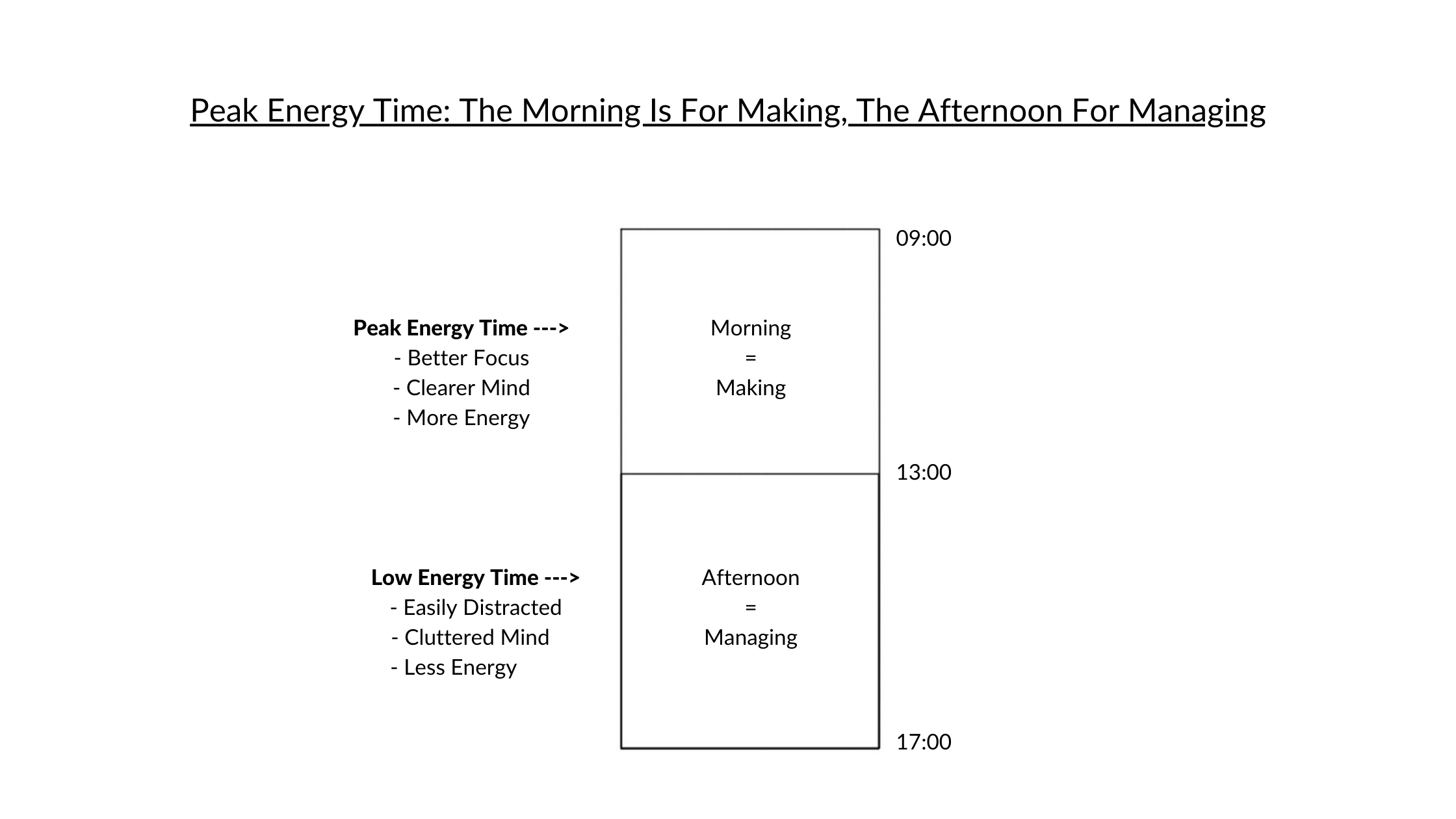4 Time-Management Techniques To Get More Done (And Have More Free Time)
GUEST POST BY JARI ROOMER
Do you ever feel like there's too much to do, but too little time to complete it all? For most high-achievers, this tends to be the reality every day. You have a ton of plans, goals, and ideas - but it’s a struggle to accomplish them all.
As an entrepreneur, I've experienced this myself many times. But, after years of studying productivity and peak performance, I've discovered a few powerful time-management techniques that allow you to get much more done while actually having more free time in your day. Yes, you can have both!
Time-Management Technique 1: Prioritize Your Sleep
There is this common (and toxic) notion that you need to sacrifice sleep in order to achieve great things. In reality, the opposite is true. You need enough hours of deep sleep each night to perform at peak your levels.
For most of you who are reading this article, your work is done with your brain - not with physical labor anymore. It's the quality of our thinking, focus, decision-making, and creativity that determines the results we're getting. This is why sleep is crucial.
One study reported that "people sleep less with the hopes of being more productive. This study shows that this is not the case – compared to those who regularly got 7 to 8 hours of sleep, those who reported getting 5 to 6 hours experienced 19 percent more productivity loss, and those who got less than 5 hours of sleep experienced 29 percent more productivity loss."
On top of that, a study published in the Frontiers in Human Neuroscience showed that those who slept less than 7 hours per night were more impulsive and had lower levels of willpower.
In other words, sleep is essential for peak performance and productivity. When you get at least 7 hours of deep sleep, your body and brain can truly recharge. This is a game-changer for your productivity the next day.
When you are well-rested, you have better focus, a clearer mind, and much more energy. In other words, you can literally do in 30 minutes what would otherwise take two hours if you'd be sleep deprived. In other words, you'd have more free time in the day to spend however you'd like to.
To make sure you get at least 7 hours of high-quality sleep each night, I suggest these tips:
Stop drinking caffeinated coffee after 17:00 (switch to decaf after that time, for example)
Keep your devices out of your bedroom so you turn it into a true sleep-sanctuary
Stop using screens 1-2 hours before bedtime to minimize the negative effects of blue light (as it blocks melatonin production)
Consider investing in a pair of blue-light blocking glasses and wear them in the evening (I recommend the brand BluBlox)
Stick to a regular sleep schedule to help your body maintain a rhythm
Clear your mind of worries and stress by meditating or journaling as part of your evening routine
Time-Management Technique 2: Use The 80/20 Rule
Most people think I'm this super-motivated guy who is always productive. This is FAR from reality. In fact, I try to 'hack' productivity as much as possible. I want to get the maximum results with minimum time and effort spent. My goal is to have as many free hours in my day to focus on my hobbies, loved ones, and physical health.
This is why I live according to the 80/20 rule. It's my personal 'holy grail' of productivity.
The 80/20 principle states that "80% of results come from 20% of effort”. This means that to achieve better results in our work and life, we don't need to do more, but we need to do what matters
It's critical to realize that when you try to do everything, you end up with nothing. The more you try to do at the same time, the more your energy and attention will be split over too many different things. This way, the highest impact tasks and projects that actually lead to success don't get the time and attention they require.
Most people have trouble understanding how many things don't need to be done if you're just focusing on the 20% of tasks that lead to 80% of results. Most things simply don't matter. At least not as much as we think they do.
That's why the most productive people don't do many things, they do important things. They usually don't have more than a few tasks on their to-do list each day - and that's precisely why they are so productive. They are strict about protecting their time and energy so they can dedicate it completely to the highest-impact tasks. They see everything else as a distraction - as busywork.
Remember, being busy doesn't equal being productive. Real productivity is when you work on tasks and projects that significantly move the needle forward to your goals and dream life. That's what matters. Everything else is just a distraction. Focus on the 20% that leads to 80% of results. Eliminate, delegate, or automate the rest as much as possible.
Time-Management Technique 3: It's Either A 'Hell Yeah' or a 'No'
One of the most effective time-management techniques is learning how to say 'no'. I'm not naturally great at it, but I've learned a concept that helps me say 'no' more often so I protect my time and energy for my priorities and highest-impact activities.
My personal rule is that if something is not a 'hell yeah', it's a 'no'.
For example, if someone approaches me for a business collaboration and I feel like it's 'kinda good', that means I shouldn't do it. It's not a 'hell yeah', so I should protect my time and energy for my current priorities.
If I have a new idea to expand my business, I shouldn't just blindly pursue it. I first need to ask myself, is this a 'hell yeah' or not? If it is, awesome! I will pursue it. If it's not a 'hell yeah', I need to say 'no' and protect my time and energy.
Learning to say no more often has been a game-changer for my productivity and performance. Every time you say 'yes' to other people's requests (or your own ideas), you're committing to something that takes your time and energy away from your priorities and other 'hell yeah' opportunities. In other words, saying yes to 'good' things automatically means saying no to 'great' things as your time and energy are now occupied.
To be highly effective, you need to be picky with where you spend your time and energy. As both are limited resources, you shouldn't squander them. Remember, sometimes you've got to drop the good things in order to make space for the great things.
Note: In the beginning, when you're just starting out with building a business, for example, it's actually better to say 'yes' as much as possible since you don't have much to be picky about. Any opportunity coming your way could be your 'tipping' moment. However, the moment you're getting good results, you should become more protective over how you allocate your time and energy so you can focus it on the most impactful activities.
Time-Management Technique 4: Use Your 'Peak Energy Time' To Maximize Performance
Everyone has a natural time in the day in which they feel most energized, awake, and sharp. This is your ‘peak energy time’. During your peak energy time, you tend to have much more energy, better concentration, improved cognitive performance, and stronger willpower.
All in all, you’re much more productive during your peak energy time — which is why it’s smart to use this time for your highest-priority tasks (the 20% of tasks that lead to 80% of results).
For me, the morning is clearly my peak energy time. That’s when I’m most mentally sharp, energized, and productive. Therefore, my personal rule is that the morning is for making, and the afternoon is for managing.
The morning is where I make new things, such as writing articles, working on products, or improving my sales funnels - activities for which I need to be at my most productive, focused, and energized.
In the afternoon, when I tend to have less energy and focus, I perform managing tasks such as emails, meetings, administrative work, etc. For these types of tasks, I don't need to be at my most productive.
Unfortunately, most of us aren't taught the concept of our 'peak energy time'. Therefore, a lot of time is spent inefficiently and we often fight an unnecessary uphill battle.
We might work on easy, low-value tasks during our peak energy time, while we leave the more complex, high-impact tasks to those hours in the day when we're much less energized and productive. This leads to a lot of procrastination, unfocused work, and wasted hours.
Therefore, identify your peak energy time and treat these hours differently. Block them in your calendar for the entire month and protect them at all costs. When you're working during your peak energy hours, put your phone away, turn all notifications off, and close email and social media tabs. Make full use of this special window in the day. Fully immerse yourself in your objective and let your mind get into a 'flow state' - the most productive human state possible.
Note: I believe most of us are already intuitively aware of our peak energy time. But, if you really don't know, I recommend you track your energy levels for an entire week by setting a reminder on your phone for each hour of the day. On a scale of 1-10, rate how energized, focused, or productive you are. Then, after a week of collecting data, you have a good overview of your peak energy time.
Now Do It
Change doesn't just come from knowing, it comes from doing. Therefore, pick at least 2 of these productivity techniques and apply them as soon as possible!
To Your Success,
Jari Roomer
Founder Personal Growth Lab
BIO:
Jari Roomer is the founder of Personal Growth Lab, a platform where high-achievers learn to work smarter so they can achieve their goals in just a fraction of the time.
Jari has helped peak performers from all walks of life upgrade their productivity - from CEOs, and start-up founders to university students, freelancers, and authors.
Want to upgrade your productivity? Check out Jari’s articles and download his free guide ‘27 Productivity Hacks For Superhuman Performance’



